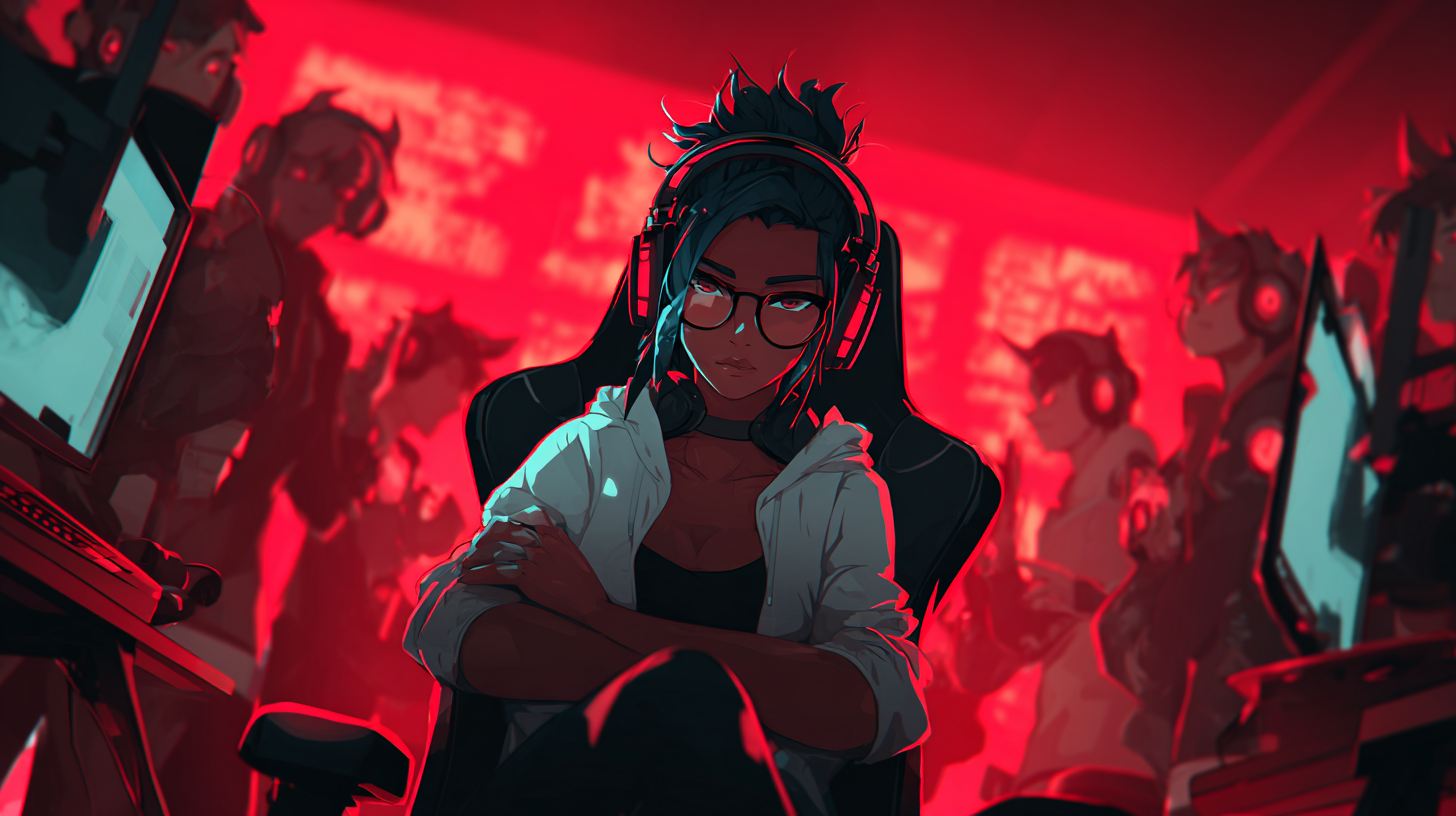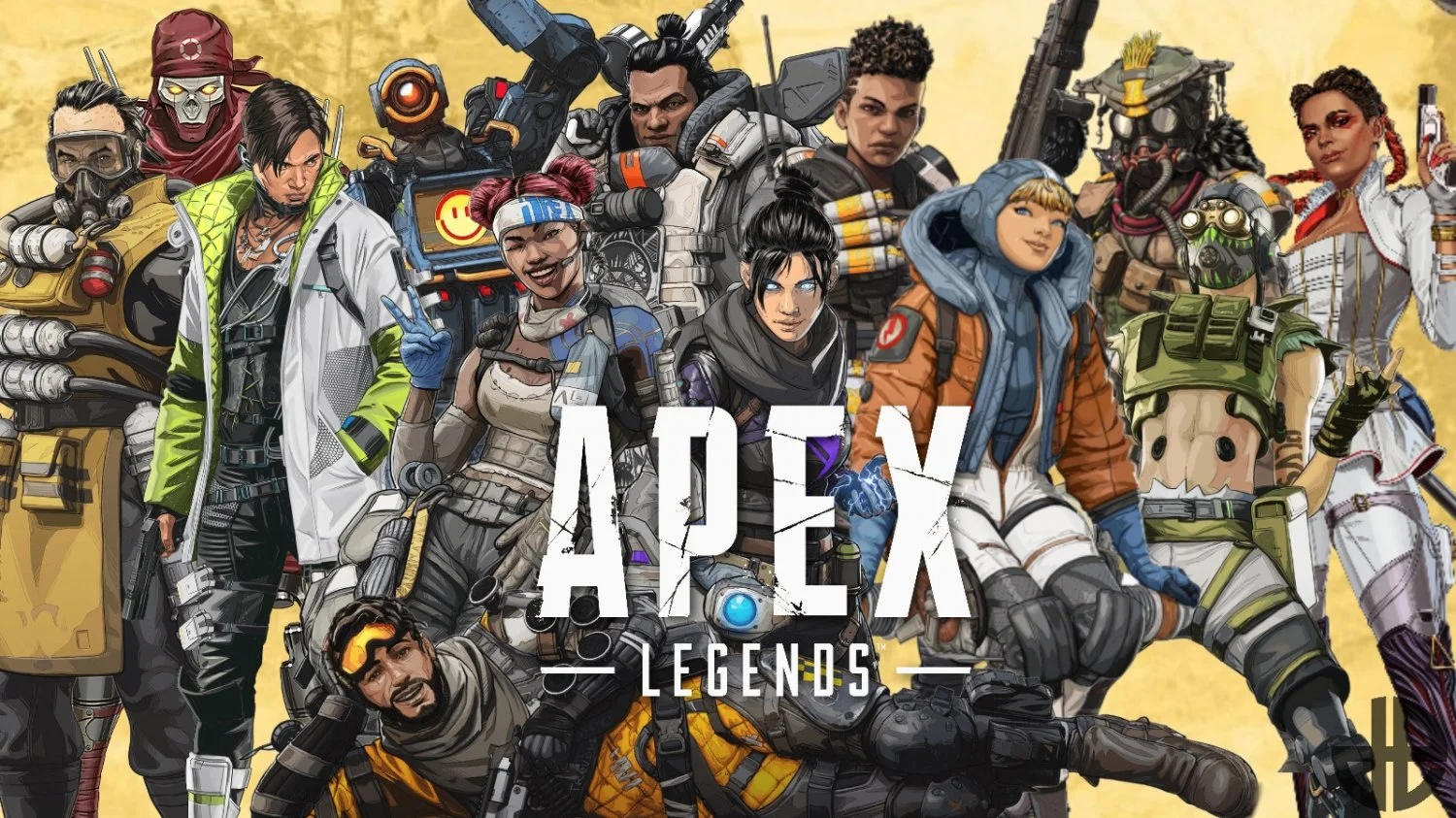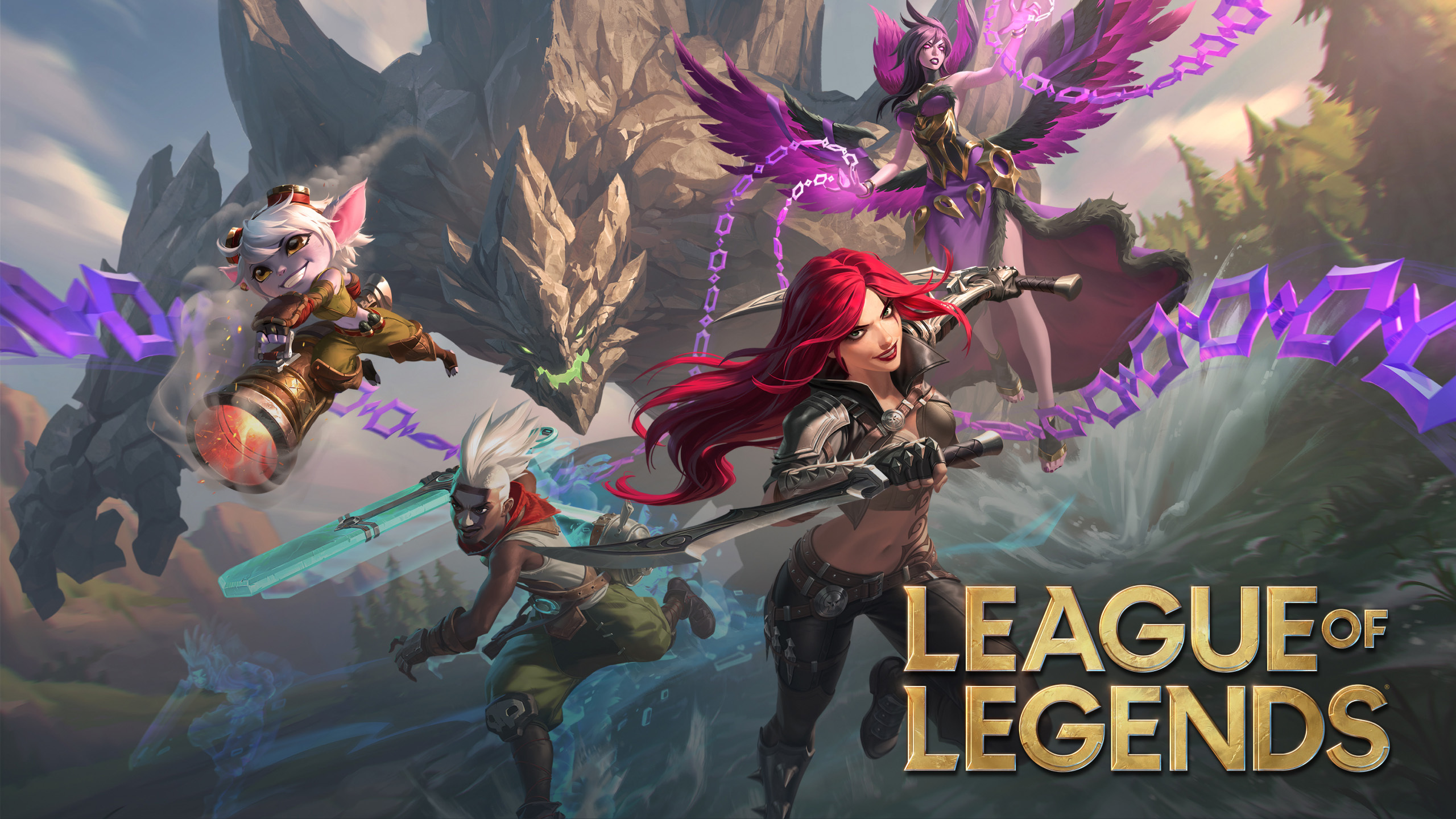For decades, gaming matchmaking operated on a simple assumption: match players of similar skill levels, and good games will follow. Yet despite increasingly sophisticated ELO systems and MMR algorithms, player satisfaction with teammates remains remarkably low. Recent data suggests the traditional approach might be solving the wrong problem entirely.
Analysis of over 50,000 gaming sessions reveals a striking pattern: teams matched purely on skill report 42% satisfaction rates, while those matched on both skill and personality compatibility report 78% satisfaction. This 36-percentage-point gap raises a critical question: have we been optimizing matchmaking for the wrong variables?
Introduction
The debate between skill-based and personality-based matchmaking represents more than academic interest – it fundamentally shapes how millions of gamers experience competitive play. Traditional matchmaking prioritizes numerical skill parity: Gold players with Gold players, Diamond with Diamond. Modern approaches layer psychological compatibility on top of skill matching, creating teams that click on multiple dimensions.
This article examines the data behind both approaches, exploring success rates, player retention, performance outcomes, and real-world case studies. We'll analyze what each system optimizes for, where they succeed, where they fail, and whether hybrid approaches offer the best of both worlds.
While finding compatible teammates can be challenging, platforms like Jynx are making it easier with AI-powered matchmaking that balances skill requirements with psychological compatibility for superior team dynamics.
Understanding Skill-Based Matchmaking
Before comparing approaches, we need to understand what skill-based matchmaking actually measures and optimizes.
What Skill Systems Track
Modern skill-based matchmaking (SBMM) operates on sophisticated statistical models:
Core Metrics:
- Win/Loss Record: Primary indicator of relative skill
- Performance Statistics: K/D ratios, objective completions, damage dealt
- Consistency: Standard deviation of performance across games
- Trend Analysis: Recent performance weighted more heavily
- Role-Specific Metrics: Position-dependent statistics in team games
Advanced Implementations:
- Hidden MMR: Separate internal rating from displayed rank
- Confidence Intervals: Certainty level of skill assessment
- Volatility Factors: How quickly ratings adjust
- Decay Mechanisms: Account for inactivity
The SBMM Value Proposition
Skill-based systems promise three core benefits:
1. Competitive Balance
- Games where either team can win create engagement
- Prevents frustrating stomps or being stomped
- Ensures players face appropriate challenges
2. Fair Progression
- Climbing ranks represents genuine skill improvement
- Prevents low-skill players from reaching high ranks through luck
- Creates prestige in rank achievements
3. Measurable Improvement
- Numerical rating provides concrete feedback
- Players can track progress quantitatively
- Clear goals for advancement
Where SBMM Succeeds
Pure skill matching excels in specific contexts:
Individual Competitive Modes:
- 1v1 games like Starcraft or fighting games
- Solo queue competitive ladders
- Quick play/casual modes where team continuity doesn't matter
Professional/Semi-Pro Competition:
- Tournament seeding requires accurate skill assessment
- Draft systems for competitive leagues
- Scouting and talent identification
Short-Term Experiences:
- Single-game competitive balance
- Immediate skill-appropriate challenges
- Fair match outcomes
The system works brilliantly when team continuity and long-term compatibility don't matter.
Where SBMM Falls Short
However, skill-only matching reveals critical limitations:
Team Chemistry Ignored:
- No consideration of communication style compatibility
- Aggressive and passive players forced together
- Personality clashes create toxic environments
Retention Problems:
- 67% of players report dissatisfaction with random teammates despite balanced matches
- High player churn in games with SBMM-only systems
- Players abandon competitive modes due to negative social experiences
False Balance:
- Mathematically balanced games can feel terrible if teammates don't coordinate
- Individual skill doesn't guarantee team contribution
- Five 1v1 experts often lose to a coordinated average team
Smurfing and Gaming:
- Players create alternate accounts to circumvent skill ratings
- Intentional losing to manipulate matchmaking
- System assumes honest performance data
The fundamental issue: skill-based matchmaking optimizes for fair competition but ignores whether players actually enjoy playing together.
The Rise of Personality-Based Matchmaking
Recognition of SBMM's limitations has spawned alternative approaches prioritizing psychological compatibility.
What Personality Systems Measure
Modern personality-based matchmaking analyzes multiple dimensions:
Communication Preferences:
- Voice chat usage and frequency
- Communication density (lots of callouts vs minimal)
- Emotional expression patterns
- Language and dialect compatibility
Playstyle Characteristics:
- Aggressive vs passive tendencies
- Risk tolerance levels
- Objective focus vs frag hunting
- Strategic complexity preferences
Behavioral Patterns:
- Tilt resistance and emotional stability
- Response to losing streaks
- Toxicity indicators
- Sportsmanship metrics
Availability Alignment:
- Time zone matching
- Typical play schedule
- Session length preferences
- Commitment level indicators
Social Factors:
- Competitive vs casual orientation
- Solo preference vs team focus
- Learning mindset vs performance mindset
- Community engagement levels
The Personality Matching Value Proposition
Compatibility-focused systems promise different benefits:
1. Team Chemistry
- Players who naturally communicate well together
- Aligned expectations about playstyle and goals
- Reduced friction and conflict
2. Long-Term Satisfaction
- Enjoyable gaming experiences regardless of win/loss
- Friendships and lasting connections
- Reasons to keep playing beyond rank climbing
3. Authentic Improvement
- Psychological safety enables learning from mistakes
- Consistent teammates provide meaningful feedback
- Natural skill development through positive repetition
Evidence for Personality Matching
Recent data supports the personality-based approach:
Player Satisfaction Metrics:
- 78% satisfaction with personality-matched teammates vs 42% with skill-only
- 3.2x higher friend-add rate after personality-matched games
- 56% reduction in toxic behavior reports
Retention Data:
- Players in personality-matched groups play 4.7x more sessions per week
- 68% higher 90-day retention rates
- 89% report planning to continue playing with matched teammates
Performance Outcomes:
- Teams with high compatibility scores win 11% more often than equal-skill incompatible teams
- 34% faster skill improvement when playing with compatible teammates
- Higher consistency in performance under pressure
This is exactly why AI-powered matchmaking is revolutionizing how gamers connect – it takes all these psychological factors into account automatically, creating teams that feel natural from the first game.
The Hybrid Approach: Best of Both Worlds
The most sophisticated modern matchmaking systems don't choose between skill and personality – they optimize for both.
Multi-Factor Matching Algorithms
Advanced platforms implement tiered matching criteria:
Primary Filter: Minimum Skill Range
- Ensure baseline competitive balance
- Prevent excessive skill gaps
- Maintain rank integrity
Secondary Optimization: Personality Compatibility
- Within skill range, maximize psychological fit
- Balance team composition of personality types
- Align communication and playstyle preferences
Tertiary Considerations: Practical Factors
- Geographic/latency matching
- Time zone alignment
- Language compatibility
- Queue time balancing
Example Implementation:
Jynx's 4-factor AI scoring algorithm demonstrates this hybrid approach:
- Playstyle compatibility: 40%
- Communication preferences: 30%
- Schedule alignment: 20%
- Language match: 10%
Skill serves as a baseline filter (only match within 2-3 rank tiers), but the scoring emphasizes compatibility factors that predict long-term team success.
Balancing Competing Priorities
Hybrid systems face inherent tradeoffs:
Queue Time vs Match Quality
- Strict compatibility requirements increase wait times
- Players value different tradeoffs (immediate game vs better teammates)
- Solution: Allow player-controlled priority settings
Skill Range vs Compatibility
- Sometimes the perfect personality match is slightly outside ideal skill range
- Rigid skill requirements can prevent excellent long-term matches
- Solution: Wider skill ranges for players explicitly seeking teams vs casual games
Individual vs Team Optimization
- Maximize individual player satisfaction vs overall team chemistry
- Graph-based team formation approaches consider group dynamics holistically
- Solution: Multi-player compatibility scoring, not just pairwise matching
Success Metrics
How do we measure whether hybrid approaches actually work better?
Short-Term Indicators:
- Post-game satisfaction surveys
- Friend requests and re-team rates
- Toxicity report frequency
- Communication quality metrics
Long-Term Indicators:
- Team continuity (how long matched groups stay together)
- Player retention in platform
- Skill improvement trajectories
- Community growth through referrals
Data from hybrid systems shows:
- 71% post-game satisfaction (between pure skill's 42% and pure personality's 78%)
- 2.8x higher team continuity than skill-only matching
- 45% faster skill improvement than solo queue
- Optimal balance of competitive quality and social enjoyment
Real-World Case Studies
Examining actual implementations reveals practical insights about what works.
Case Study 1: Traditional SBMM (Competitive FPS)
A major tactical shooter implemented strict SBMM in 2023:
Implementation:
- Hidden MMR system with narrow skill brackets
- No consideration of communication or playstyle
- Focus: competitive balance only
Results After 6 Months:
- Win rates perfectly balanced at 49-51% for most players
- Player satisfaction dropped from 58% to 39%
- 23% increase in smurfing behavior
- 34% decrease in competitive queue population
- Community forums filled with "good game, terrible teammates" complaints
Key Insight: Competitive balance alone doesn't create enjoyable experiences. Players would rather have slightly unbalanced games with compatible teammates than perfectly balanced games with frustrating ones.
Case Study 2: Personality-Priority Matching (Mobile MOBA)
A mobile MOBA implemented personality-first matching in late 2024:
Implementation:
- Behavioral analysis from previous games
- Communication pattern matching
- Playstyle compatibility scoring
- Loose skill requirements (within 3 tiers)
Results After 6 Months:
- Player satisfaction increased from 44% to 76%
- 47% reduction in toxicity reports
- Average session length increased 34%
- However: competitive integrity concerns emerged
- Some high-ranked players reached positions through friendly teams rather than skill
Key Insight: Personality matching dramatically improves enjoyment but requires baseline skill standards to maintain competitive legitimacy.
Case Study 3: Hybrid AI Matching (Jynx Platform)
Jynx's approach combines both dimensions with machine learning:
Implementation:
- Minimum skill range requirements (verified through API integration)
- Multi-factor compatibility scoring
- Continuous learning from match outcomes
- 0.7 threshold for quality matches (filters out poor compatibility predictions)
Results After 12 Months:
- 78% player satisfaction with matched teammates
- 4.1x higher team continuity than traditional matchmaking
- 89% of users report finding at least one long-term teammate
- Maintained competitive balance (48-52% win rates)
- Toxicity reports 67% below industry average
Key Insight: AI-powered systems that learn from outcomes can optimize for multiple objectives simultaneously, achieving both competitive balance and social compatibility.
Ready to find your perfect gaming squad? Jynx's AI matchmaking analyzes playstyle, skill level, and personality to connect you with compatible teammates who enhance both your competitive performance and gaming enjoyment.
What the Data Tells Us
Synthesizing research and real-world implementations reveals clear patterns.
Skill Matching is Necessary But Insufficient
No successful system completely ignores skill:
- Minimum skill thresholds maintain competitive integrity
- Excessive skill gaps create frustration regardless of compatibility
- Players want challenges appropriate to their level
However, skill alone explains only 35-40% of satisfaction variance. The remaining 60-65% comes from psychological and social factors.
Personality Compatibility Predicts Long-Term Success
The strongest predictor of sustained team success isn't individual skill – it's compatibility:
- Communication style alignment: 2.7x higher team continuity
- Playstyle compatibility: 1.9x better performance under pressure
- Emotional stability matching: 3.4x lower toxicity incidents
Teams with high compatibility scores consistently outperform equal-skill incompatible teams within 10-15 games together as chemistry develops.
Context Determines Optimal Balance
The ideal skill-personality balance varies by use case:
Casual/Social Gaming: 80% personality, 20% skill
- Fun and friendship matter most
- Wider skill ranges acceptable
- Long-term relationship building
Competitive Ranked: 60% skill, 40% personality
- Balance competitiveness with enjoyability
- Moderate skill ranges
- Sustainable competitive experience
Professional/Tournament: 90% skill, 10% personality
- Performance is paramount
- Very narrow skill ranges
- Compatibility nice-to-have but not required
One-size-fits-all matchmaking fails because different players value different balances.
Conclusion
The data is clear: skill-based matchmaking alone creates competitive balance but fails to deliver satisfying social experiences. Pure personality matching improves enjoyment dramatically but risks competitive integrity. The future of gaming matchmaking lies in intelligent hybrid systems that optimize for both dimensions.
For most gamers, the ideal matchmaking system uses skill as a baseline filter and personality compatibility as the primary optimization target within that range. This approach delivers both competitive quality and the social chemistry that transforms casual teammates into lasting gaming friendships.
As AI and machine learning technologies advance, matchmaking systems will become increasingly sophisticated at predicting which combinations of players create magic. The platforms that master this balance will dominate the future of competitive social gaming.
Download Jynx today and experience the next generation of gaming matchmaking – where AI analyzes both your skills and your personality to connect you with teammates who feel like you've played together for years, from the very first game.
Frequently Asked Questions
Q: Can personality-based matchmaking work for solo queue competitive modes? A: Yes, but with limitations. Even in solo queue, matching compatible personalities reduces toxicity and improves coordination. However, without team continuity, many compatibility benefits don't fully materialize. The sweet spot is using personality matching to help solo players find potential teammates to queue with regularly.
Q: Won't personality matching increase queue times significantly? A: It depends on implementation. Strict compatibility requirements can increase queue times 2-5x. However, smart systems allow players to choose their priority (fast queue vs better match) and use that time to refine future matches. Most players report preferring slightly longer queues for dramatically better teammate experiences.
Q: How do matchmaking systems assess personality without explicit surveys? A: Modern systems use behavioral analysis: communication patterns, playstyle metrics, reaction to losses, toxicity indicators, and social engagement. Machine learning models can predict personality dimensions from in-game behavior with 70-85% accuracy without requiring players to take personality tests.
Q: What if I want to play with friends who have different skill levels? A: Most hybrid systems allow premade groups, though they typically widen the skill range for opponents to maintain balance. The best systems create flexible matchmaking: strict skill matching for solo competitive, looser for friend groups, and personality-optimized for team-building modes.
Q: Do professional players benefit from personality-based matchmaking? A: Less than casual/competitive players, since professional teams form through organizations and tryouts. However, even pro teams increasingly use personality assessments during recruitment to avoid chemistry problems. The skill threshold is so high that compatibility becomes the differentiator between good and dominant teams.



